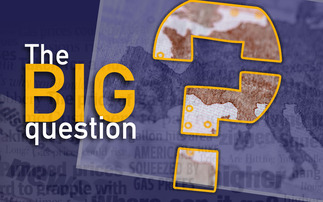Italy has agreed to create a €5bn rescue fund in a bid to calm investor concerns over the country's ailing banks and struggling economy.
According to the Financial Times, the fund was announced by Italian Prime Minister Matteo Renzi after a six-hour meeting with senior financiers in Rome.
The fund has been dubbed "Atlas" and will see UniCredit, Intesa Sanpaolo and UBI Banca, three of Italy's largest banks, create a backstop facility to support distressed lenders.
Shares in the three lenders have jumped by around 15% in the three days since reports of the fund became public.
The launch comes on the back of widening concerns over the effects of €360bn worth of troubled loans held by weaker counterparts on Italy's economy.
The meeting also saw Italy's government agree to reform the country's bankruptcy laws in line with European norms.
Currently, it takes an average of eight years in Italy to recover bad loans, compared with an EU average of two to three years.
"In the next days we will make the bankruptcy procedure faster and more simple so that everyone can be assured of getting their money back in a reasonable timeframe," said Renzi.
"The fund is an instrument that could contribute to completing the process of strengthening the solidity of the Italian banks and expanding the market for non-performing loans," said Pier Carlo Padoan, Italy's finance minister.
The crisis for Italian banks has escalated to an extent where Veneto Banca and Banca Popolare di Vicenza, two of the country's lenders, could be forced to raise €2.5bn on Italy's stock markets in the coming weeks, according to advisers to Italian banks.
Italian two-year debt sells at negative yields for first time
By relying on banks for rescue funds, Italy is excluding the European Commission, which traditionally manages the orderly wind-down of banks with the European Central Bank (ECB) through a resolution process.
Senior city sources also claim that Greece was attempting to strike a deal this weekend in order to keep its bailout on track, according to the Sunday Times.
Creditors are seeking savings on income taxes and pensions worth around 3% of GDP, with Greece needing to secure billions of euros to meet the terms of its €3.5bn debt repayment in July, following last year's bailout by the International Monetary Fund (IMF) and the ECB.















